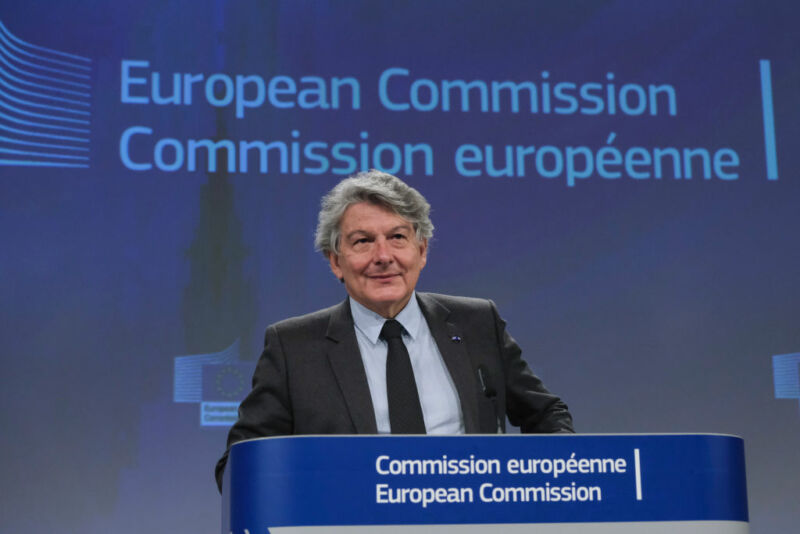[ad_1]

Thierry Monasse | Getty Photographs
European Union lawmakers have agreed on the phrases for landmark laws to control synthetic intelligence, pushing forward with enacting the world’s most restrictive regime on the event of the know-how.
Thierry Breton, EU commissioner, confirmed in a submit on X {that a} deal had been reached.
He known as it a historic settlement. “The EU turns into the very first continent to set clear guidelines for the usage of AI,” he wrote. “The AIAct is far more than a rulebook—it’s a launchpad for EU start-ups and researchers to guide the worldwide AI race.”
The deal adopted years of discussions amongst member states and politicians on the methods AI needs to be curbed to have humanity’s curiosity on the coronary heart of the laws. It got here after marathon discussions that began on Wednesday this week.
Members of the European Parliament have spent years arguing over their place earlier than it was put ahead to member states and the European Fee, the chief physique of the EU. All three—nations, politicians, and the fee—should agree on the ultimate textual content earlier than it turns into legislation.
European corporations have expressed their concern that overly restrictive guidelines on the know-how, which is quickly evolving and gained traction after the popularisation of OpenAI’s ChatGPT, will hamper innovation. Final June, dozens of a number of the largest European corporations, comparable to France’s Airbus and Germany’s Siemens, mentioned the principles had been trying too robust to nurture innovation and assist native industries.
Final month, the UK hosted a summit on AI security, resulting in broad commitments from 28 nations to work collectively to sort out the existential dangers stemming from superior AI. That occasion attracted main tech figures comparable to OpenAI’s Sam Altman, who has beforehand been crucial of the EU’s plans to control the know-how.
© 2023 The Monetary Instances Ltd. All rights reserved. Please don’t copy and paste FT articles and redistribute by e-mail or submit to the net.
[ad_2]